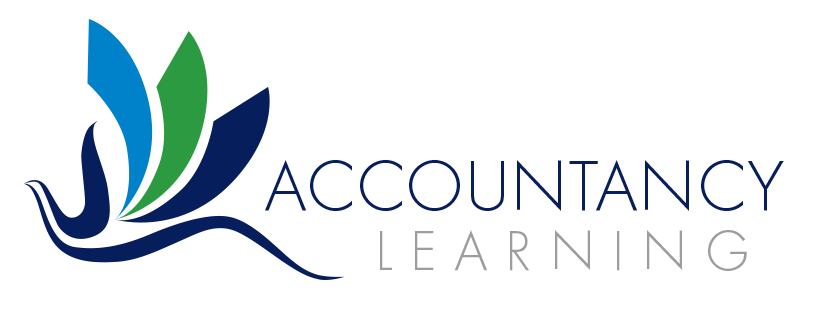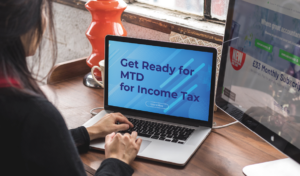The world of accounting (as with many other sectors) is undergoing a profound transformation, driven by rapid advancements in technology.
So, as technology is evolving, we must also evolve, by adapting the ways in which we currently study and work.
When I studied for my AAT qualification, everything was paper-based – I attended monthly lectures, where the tutor used PowerPoint slides and a whiteboard; and we had presentation handouts where we could scrawl our notes in the margins.
The AAT paper-based exams were held once every six months and these took place in a large classroom under invigilated conditions, much like most school exams, so if you were unfortunate enough to fail an exam, you would have to wait 6 months before you could re-sit it (a good incentive to study hard and pass the exams first time!).
These days of course, all the AAT exams are online and are now ‘on demand’ i.e. you can sit them any time you like.
The main aim of acquiring the knowledge and skills from the AAT qualifications is to transfer what has been learnt to the workplace – a place where technology has transformed working practices over the years.
The Impact of Technology on Accounting
Technology has revolutionised the accounting profession in numerous ways, from streamlining tedious tasks to providing real-time financial data and insights.
Here are some key ways in which technology is influencing the field of accounting:
Automation: The rise of accounting software, such as Sage, QuickBooks and Xero, has automated many manual data entry and reconciliation tasks e.g. your accounting software is generally linked to a live bank feed, so you can reconcile the transactions entered onto the system with the bank statement.
A huge bonus of accounting software is that it enables users to enter single entry transactions whilst the system performs the other side of the double entry transaction for you! (That’s not to say that you shouldn’t learn ‘manual double entry bookkeeping’ – we recommend that you should, as this will give you insights into what the accounting software is doing in the background.)
All this automation allows accountants to focus on higher-value activities such as data analysis and strategic financial planning.
In the ‘olden days’, accounting transactions were all entered manually into ledgers (very large books, which were rested on a sloping desk), and of course, there were no calculators back then. Even I remember when the first calculator was brought into school by a teacher – it cost £100! Well, that tells you roughly how old I am – how times have moved on.

Data Analytics: Big data and analytics tools enable accountants to analyse vast datasets quickly and extract valuable insights. Predictive analytics helps in forecasting financial trends and identifying potential risks e.g. within accounting software programs, there are multiple reporting features, which are accessible by the click of a button – imagine trying to do that 40 years ago!
Blockchain Technology: Blockchain is revolutionising how transactions are recorded and verified e.g. it enables an authorized person to enter a transaction, which must then be authenticated by the technology. That action creates a block that represents that specific transaction or data. The block is then sent to every computer in the network.
Blockchain technology therefore enhances transparency, reduces fraud, and simplifies the auditing process.
Cloud Computing: Cloud-based accounting solutions facilitate collaboration and access to financial data from anywhere, providing flexibility for accountants and their clients. Internet connections have improved dramatically over the past decade or so – it would have been impossible for accountants and clients to access their data on Quickbooks or Xero 20 years ago.
Artificial Intelligence (AI): AI-powered chatbots and virtual assistants can handle routine client inquiries (I’m sure we’ve all come across these when shopping online), while machine learning algorithms can identify patterns and anomalies in financial data.
You’ve probably heard all about ChatGPT too, and if you aren’t currently using it, you should definitely give it go, as it is advancing rapidly! ChatGPT can perform a multitude of tasks such as, write songs and poems, summarise or write articles for you, solve maths problems; it can even code computer programs!
Other AI software can generate digital images for you based on what you tell it to do – you can have all sorts of fun with this one (check out Dall-e) – to illustrate this, the images in this article were created by Dall-e, and they only took a few minutes each! (You do need an ChatGPT upgrade to use.

Preparing for the Future
In summary, the AAT curriculum is also adapting to the changing needs of the accounting field by incorporating technology-focused content.
This isn’t the only area where the AAT are making changes – with the advent of home or hybrid working following Covid, it’s important that we stay connected with people, so ‘business awareness/the business environment’ has been incorporated into the current syllabus, which includes ‘communication’, lest we forget how to talk to one another and write coherently – all important attributes when liaising with our colleagues, customers and suppliers! Technology still can’t do everything (thank goodness 😊).
I’ve mentioned the AAT quite a lot in this article, so if you are interested in a career in accounting, getting started with an AAT qualification would be a great option – over 5,000 employers trust the AAT for the finance training!
Get started
To get started, you can browse through the AAT courses we offer here, or you can email us at [email protected] or phone us on 01392 435349, so we can chat it all through with you.






